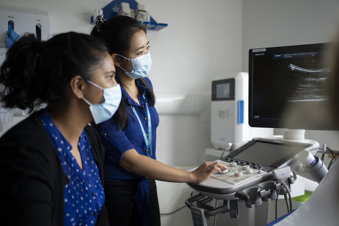| 4 mins
Latest updates
Read about our latest updates, new ventures and partnerships, recent accolades and community activities.
Filter By:
| 7 mins
NHS hiring bans on radiologists and cancer doctors double in a year despite widespread cancer delays
| 3 mins
Cancer Plan reflects RCR priorities for improving cancer care
| 2 mins
RCR responds to AI and robotic pilot to detect lung cancer
| 2 mins
Statement on the purpose of cross-sectional imaging scans taken for planning radiotherapy
| 2 mins
RCR welcomes plans to produce cutting-edge cancer treatments from uranium
| 4 mins
Nearly half of NHS trusts missing test waiting time target as backlogs grow
| 2 mins
RCR reacts to prostate cancer screening recommendation
| 2 mins
RCR responds to Autumn Budget 2025

| 2 mins
RCR responds to 10-year workforce plan consultation
| 4 mins
Over a quarter of breast cancer doctors set to retire within 5 years, putting patient care at risk
| 1 min
Guidance on screening and symptomatic breast imaging, fifth edition published
See our latest updates, policy reports and initiatives.
News & policy